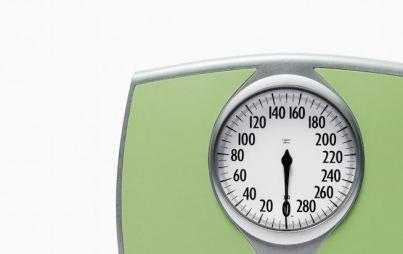
Dickens was shocked to receive a letter back stating that, because of her weight as reported on the form, her child was required to schedule a follow-up visit with her pediatrician and provide documentation of it to the school.
It’s back-to-school time, which means that while I begin my self-imposed ban from office supply stores and try to avoid all the parents behaving badly, there is something much more insidious happening. (And I don’t mean the fact that Betsy DeVos bought her way into our public schools.)
I’m talking about how some schools are busy trying to instill body shame and possibly triggering eating disorders in their students.
Katie Dickens recently found this out the hard way. Like all Georgia parents of first-time public school children, she filled out Form 3300. The form asks questions in four different categories: Hearing, Vision, Dental, and Nutrition. The Hearing, Vision, and Dental categories ask questions pertaining to hearing, vision, and dental health. The “Nutrition” category asks only for weight, height, and the ratio between the two (also known as BMI).
Dickens was shocked to receive a letter back stating that, because of her weight as reported on the form, her child was required to schedule a follow-up visit with her pediatrician and provide documentation of it to the school.
Besides the fact that any form that considers “nutrition” and “weight” the same thing betrays a complete lack of knowledge of both, and besides the fact that the percentages of what constitutes a “healthy weight” for kids are more or less arbitrary, we have the fact that schools are severely underfunded and have a difficult enough time fitting in actual learning alongside all testing preparation for students. So maybe they could keep their eye on the ball here instead of treading where they absolutely do not belong.
It’s called a BMI report card, and it can be made even worse if kids are forced to be weighed in front of their classmates. In some cases, the gym teacher calls out their weight for everyone to hear.
Dickens said: "Yeah, I don’t need her to have a stigma already in the fact that she’s already nervous about starting school. It’s like a whole new world, you know that, we’ve all been to kindergarten. You’re scared to death, but you’re excited at the same time. The last thing I need is for my child to be worried about what she weighs at five years old… And [she] is actually above the criteria for her height.”
It’s not just at the beginning of the school year, and it’s not just Form 3300. In other schools, it’s done in the middle of the year, and it’s called a BMI report card. This can be made even worse if kids are forced to be weighed in front of their classmates with, in some cases, the gym teacher calling out their weight for everyone to hear.
You’re probably asking yourself who in the Sam Hill could possibly think this is a good idea, and that’s an excellent question. Driven by the utterly ill-advised “war on obesity,” more and more school districts and even state and national government programs are insisting that we focus on the weight of children rather than their actual health.
These programs fail on every level. They fail to acknowledge not just a natural diversity of body sizes and body compositions, but also natural fluctuations in kids’ weight. If a kid gets their BMI report card taken when they’ve put on weight before a growth spurt, and their parents take them to a doctor who puts them on a diet and restricts their calories, how does that affect that child's growth and health? How are kids supposed to learn to listen to and honor their bodies' hunger signals when we’re putting them on diets in elementary school?
How are kids going to have any chance to develop a lifelong love of movement when we teach them that exercise is either punishment for having a body that is “too big” or something to be done in order to keep kids from looking like their larger classmates? How do we keep our kids from growing up into pathetic Reddit trolls when our schools teach them that some bodies are good bodies and some are not?
Worse, since intentional weight loss almost never works, some of these programs are using other measures of “success,” one of which is an INCREASE in kids who are indicating that they are concerned about their weight. Just to be clear, they are suggesting that creating a preoccupation with weight is a good thing for kids. There is, as you might expect, no research to support the idea that any of this will make kids thinner or healthier (which are, of course, two different things).
In fact, research from the University of Minnesota notes: “None of the behaviors being used by adolescents (in 1999) for weight-control purposes predicted weight loss[ in 2006]… Of greater concern were the negative outcomes associated with dieting and the use of unhealthful weight-control behaviors.”
And we live in a world where one out of four children has dieted prior to turning seven, and a staggering 80% of American girls aged ten have been on diets. So kids don’t need any more help being thin-obsessed.
This isn’t an insignificant matter; it can be a matter of life and death. According to the American Academy of Pediatrics, in the last decade hospitalizations for eating disorders for kids under 12 are up 119%. Kids. Under. Twelve.
So, what can you do?
Call your kid’s school and see if they do anything like this. If they do, ask what it takes to opt out — can you send a letter? Get a note from your doctor? Claim a religious exemption? Then do it, whatever it takes.
Figure out who created this policy, get other parents together, and get some activism going.
Talk to your kid about the fact that the world is messed up, and they are fine.







